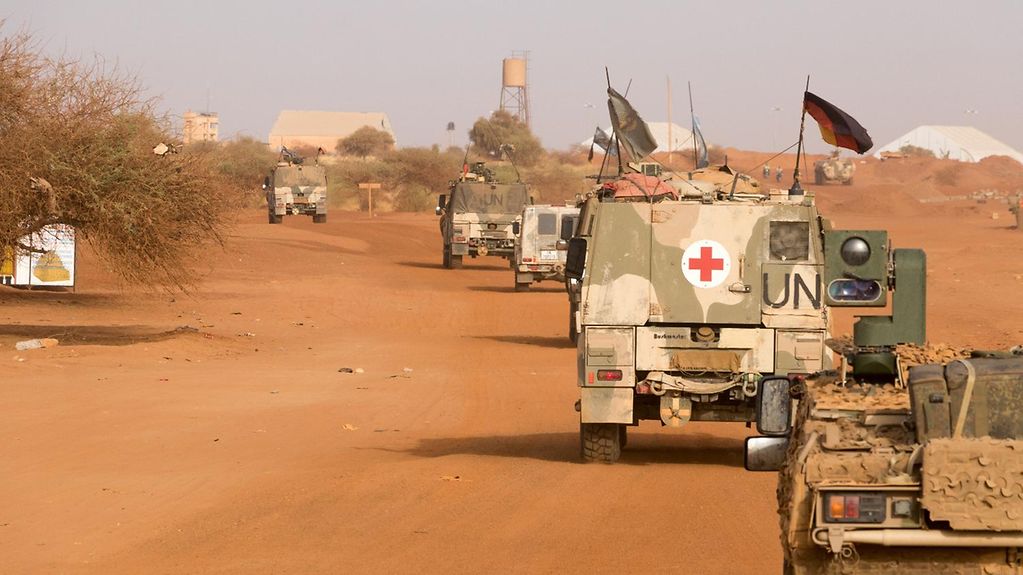FAQs on MINUSMA and EUTM Mali
Bundeswehr troops will continue to be part of the peace missions of the United Nations and the European Union in Mali. The Cabinet has decided to extend the mandates until 31 May 2022. This decision must still be approved by the German Bundestag. Here is a roundup of important FAQs relating to the missions.
3 min reading time

Stabilising Mali is one focus of Germany’s engagement in the Sahel region.
Photo: Bundeswehr/Guido Ritter
What are the goals of EUTM Mali and MINUSMA?
The political stabilisation of Mali and combating terrorism in the Sahel region are crucially important for the safety and security of the international community, including Germany.
The United Nations Multidimensional Integrated Stabilisation Mission in Mali (MINUSMA) and the European Training Mission (EUTM) Mali are helping the country restore peace and democracy throughout the country.
While MINUSMA is contributing in particular to implementing the internal peace agreement in Mali and restoring statehood and the political dialogue, the main thrust of EUTM Mali is to train the country’s armed forces. This is intended to complement the work of MINUSMA. The two missions are closely interlinked and are to be continued until 31 May 2022.
Why are the missions being extended?
The current security situation is Mali and other parts of the Sahel give grounds for concern. The threat posed by terrorism and organised crime targets not only Mali, but risks destabilising all of West Africa. That makes it essential to extend the Bundeswehr’s engagement under MINUSMA and EUTM Mali in order to support stability and peace in the Sahel region in the long term.
What exactly is the contribution of the Bundeswehr?
German troops are involved in both missions. Within the scope of MINUSMA the Bundeswehr is involved in particular in the fields of reconnaissance, installation defence and support forces. As well as air transport capacities to supply Malian armed forces, land- and air-based reconnaissance support is provided in order to obtain an assessment of the general situation. This is intended to support the rebuilding of Mali’s security forces, as well as protecting human rights and humanitarian assistance.
EUTM Mali supports this work with a training mission. German soldiers provide military advice and training for Mali’s armed forces and the G5 Sahel Joint Force (Mali, Burkina Faso, Mauritania, Niger, Chad). They may not participate in combat operations.
What will change in future regarding the mandates?
The deployment of the Bundeswehr as part of EUTM Mali has been brought into line with the current security situation. In future the mandate will cover all G5 Sahel states, including Niger and Burkina Faso. This is the response of the German government to cross-border security threats.
Both the extension of the geographical area covered by the mandate and the preparation of the planned German leadership of the mission as of mid- 2021 make it necessary to raise the ceiling on German troops that may be deployed from 450 to 600.
The participation of German troops in the UN’s MINUSMA mission does not involve any substantial changes. The mandate will be extended unchanged.
Is the German government also engaged in Mali in non-military ways?
Alongside MINUSMA and EUTM Mali, Germany is engaged in the Sahel region in the form of development cooperation and the Enable and Enhance initiative of the German government.
It is important to have a range of both civilian and military engagement in order to bring political stability to the country and restore peace on a sustainable basis. This goes from training and advising Malian security forces on the ground to humanitarian assistance.